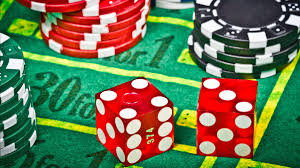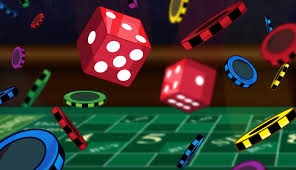
The classic game of craps can be some of the most fun you have with a computer. It is a high action game in which you can win big money in a short amount of time.
Of course, you can also lose money fast. Any live casino game accelerates when playing online, so it’s important to approach this game the right way.
Try to Stick to the Smart Bets
In craps, the lowest House edge comes from playing the pass/don’t pass or come/don’t come bets with the true odds added. Placing or buying a specific number also has true odds.
Anything else, such as hard way bets, the “free odds” bets, or the bet on the 6 or the 8, has a higher House edge. Therefore, the best strategy for them is to stick to the pass/don’t pass and come/don’t come bets, taking the true odds, or adding extra margin by nottrap or calling Odds.
Smart Betting Practices
In regards to craps, there is no one strategy that is always correct. It is perfectly possible to make a terrific score each time, or lose spectacularly. The key is to know which bets are the most to make and which bets are the least. Craps is a game of streaks. Take a few wins or a few losses, and slowly ease out of the bets. If you are moving to larger bets, start slowly.

In online craps play, you can play without stopped after a win. Play with a stop-win or a stop-loss to come and no need to take a break. Play with a full course or opportunity of betting, take your time, and be calm and collected.
There may or may not be a score for the rest of the game. You can combine bets on the next several rolls of the dice, in hope of the numbers coming up. You can also bet on “odds” that the next number will be a certain combination of numbers. Odds bets are more costly for the amount of odds you need.
After you become familiar with the betting options in craps, you might want to find a table for the game you know well. Craps can be an intimidating game for somebody who is not sure of the rules. If you are not sure of the pass/don’t pass or come/don’t come bets, you might want to find a table where there are only experienced players for you to learn the game.
tidy little bets, like the Pass Line, Don’t Pass Line, and Come/Don’t Come bets can be a little confusing too. The odds for most of these bets are simpler than they are in roulette or craps. You don’t have to remember the odds, and you don’t have to come up with one, but the bets are real and make you earn.
You can bet the Pass Line or the Don’t Pass Line as two different bets and still get the same odds. Let’s say there is a game in Las Vegas with 1600 craps players taking place at the same time. You can bet $20 in the Pass Line, $40 in the Don’t Pass Line. If the shooter rolls a 3, you will have $10 on the Pass Line and $40 on the Don’t Pass Line. You are now hoping the shooter rolls a 3. You have to win $10 more on the Don’t Pass Line than you lost on the Pass Line. Your total bet on all of the Pass and Don’t Pass numbers will now total $60. If the shooter rolls a 3 and rolls a 7 before rolling the 3, then you will lose the $40 on the Don’t Pass Line – but you will win $10 on the Pass Line. Your total profit would be $10.
The logic is similar in blackjack. If you see an Ace on the first card dealt to you, you can assume that there is a good chance that you will get an ace card as the first card to be dealt in future dealing rounds. That at least is the basic theory behind the idea. How often you should bet, or how much, is a matter of personal experience. But assuming you do get an ace, you can rest assured that the mathematical odds say you will still lose money unless you also hit a high card, in which case you would generally hit a high card unless you are certain you will definitely lose. The same theory goes for roulette.
However, there are a number of other theory behind roulette. A popular one is called the residents bet. The residents bet is a bet placed on several numbers, not on the same number. Often, residents bets are around dozen bets. What this theory means is that you may not lose, unlike a regular losing streak. residents bets are often around thirty odd numbers.